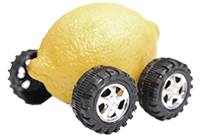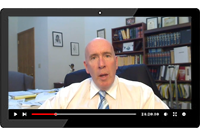What is auto fraud? Odometer tampering, as well as non-disclosure of a vehicle’s wreck or salvage history, lemon buy-back history, or repaired damage to new cars, are just some examples of auto fraud.
Auto dealer fraud happens when a retail dealer:
- Engages in misrepresentation
- Fails to disclose important information regarding the sale of a new or used car
- Conceals information such as whether the car is a lemon, has been involved in an accident, etc.
Buying a car is a major investment for most consumers. Therefore, you need to be prepared to do more than just test drive cars when you walk into a dealership, and especially before signing any sale agreements.
When purchasing a used car, you need to do your due diligence into documents pertaining to the condition of the vehicle and the terms of sale. In most states, auto dealers are required to disclose whether the vehicle has been flood-damaged, designated as “salvage,” or incurred significant damage in an accident.
Car buyers have rights
Making a claim of auto dealer fraud is different from making a claim under California’s Lemon Law. A Lemon Law claim is based on the condition of the car itself whereas an auto dealer fraud claim is based on the wrongful conduct of the dealer during the sale of the car.
The number and variety of tricks that an auto dealer may employ when you walk on the lot, intent on purchasing a vehicle, are endless. However, the good news is that consumers have car buyer rights under California’s consumer fraud laws.
When entering into an agreement with a dealer you have a right to:
- Copies of all documents you signed in the transaction
- An accurate odometer reading, and if the odometer has been rolled back, disclosure of the vehicle’s actual mileage
- A copy of the Buyer’s Guide, which contains legally required information about the vehicle and the transaction
Disclosures should include:
- Accurate payment information when it comes to financing
- Any negative equity in the vehicle
- Any previous buyback of the vehicle from a previous owner under California’s Lemon Law
- Any prior use of the vehicle, especially if it was used as a rental car
- Any significant prior accidents
While consumer protection laws tackle many of these issues, as a consumer, you need to take the necessary steps to educate yourself about aggressive sales tactics, misrepresentation, and other dealer scams, so you can protect yourself when entering into a transaction with an auto dealer.
If you have problems with your car that you believe are the result of auto dealer fraud, enlist the services of an attorney that specializes in auto dealer fraud.
Are you a victim of auto dealer fraud?
Some of types of auto fraud cases include:
- Lemon laundering
- Inflating the price of a vehicle
- Undervalue or underpay for a car buyer’s trade-in
- Deceptive advertising
- Odometer rollback
If you have questions about what is considered auto fraud on the part of car dealers or believe you’ve been a victim of auto dealer fraud, contact the Law Offices of Robert F. Brennan, APC, auto fraud attorney in California.



